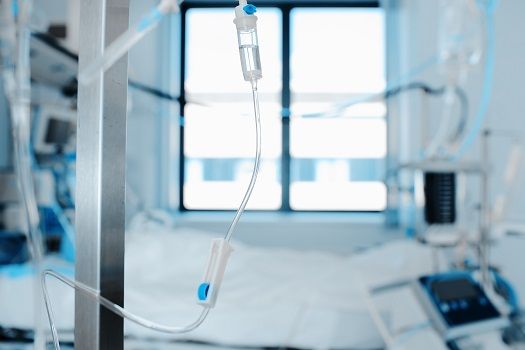Article
ICU Diaries Not Associated with Improved PTSD Symptoms
Author(s):
New research shows keeping a diary while in the ICU does not prevent PTSD symptoms from occurring.

Keeping a diary while in the intensive care unit (ICU) does not necessarily prevent posttraumatic stress disorder (PTSD) symptoms from developing following hospitalization.
A team led by Maité Garrouste-Orgeas, MD, French British Hospital Institute, found from a France-based randomized clinical trial with 339 patients at 35 ICUs that PTSD symptoms occurred in 29.9% of patients that kept a diary, while occurring in 34.3% of patients in a control group, showing that the difference is not statistically meaningful.
Patients in the clinical study were asked to keep a diary while in the ICU to assess whether clinicians and family members keeping notes while hospitalized could have a psychological impact on patients.
The initial blinded trial occurred between October 2015 to January 2017, with a follow-up period in July 2017.
The 355 patients in the intervention group filled a diary, while 354 control group patients had traditional ICU care without a diary.
After 3 months, 49 of 164 patients in the intervention group suffered significant PTSD symptoms, as defined by the Impact Event Scale-Revised (IES-R) score greater than 22. On the other hand, 60 of 175 in the control group suffered significant symptoms. The median IES-R score was 12 in the intervention group and 13 in the control group, with no significant differences in any of the 6 prespecified comparative secondary outcomes.
Also, the patients who received mechanical ventilation did not significantly report a reduction in symptoms after using the diary, suggesting that ICU diaries do not prevent PTSD symptoms.
A trio of authors from the University of Toronto—Louise Rose, RN, MN, PhD; Fiona Muttalib, MDCM; and Neill K. J. Adhikari, MDCM, MSc—wrote in an editorial accompanying the article that ICU trips can have short-and-long-term effects on patients, including delirium, anxiety, depression, acute stress disorder, and PTSD.
The long-term physiological effects appear similarly in patients and family members, where symptoms of anxiety and acute stress can also occur in family members due to concerns and uncertainty of the prognosis of the family member.
“Psychological consequences may be exacerbated by delusions experienced during delirium, which is common among critically ill patients and has adverse effects on physical and cognitive function and leads to increased health care use and costs,” the authors wrote. “For families, anxiety and acute stress arise from concern and uncertainty regarding the prognosis of their family member.”
Mitigating the potential negative effects is an ongoing core focus of critical care, along with managing and preventing organ failure, while providing timely prognostic information and compassionate end-of-life care when applicable.
In recent years, there has been a push to use new technologies and methods, such as videoconferencing and virtual reality to help treat and alleviate PTSD symptoms.
The US Department of Veterans Affairs has studied PTSD and sought better treatment methods for the last 3 decades.
Within the last 5 years, researchers have found that cognitive processing therapy through videoconferencing could be just as an effective technique as in-person therapy.
In 2017, they also found that prolonged exposure therapy delivered through videoconferencing is as effective as it is delivered in person.
The study, “Effect of an ICU Diary on Posttraumatic Stress Disorder Symptoms Among Patients Receiving Mechanical Ventilation,” was published online in JAMA.




